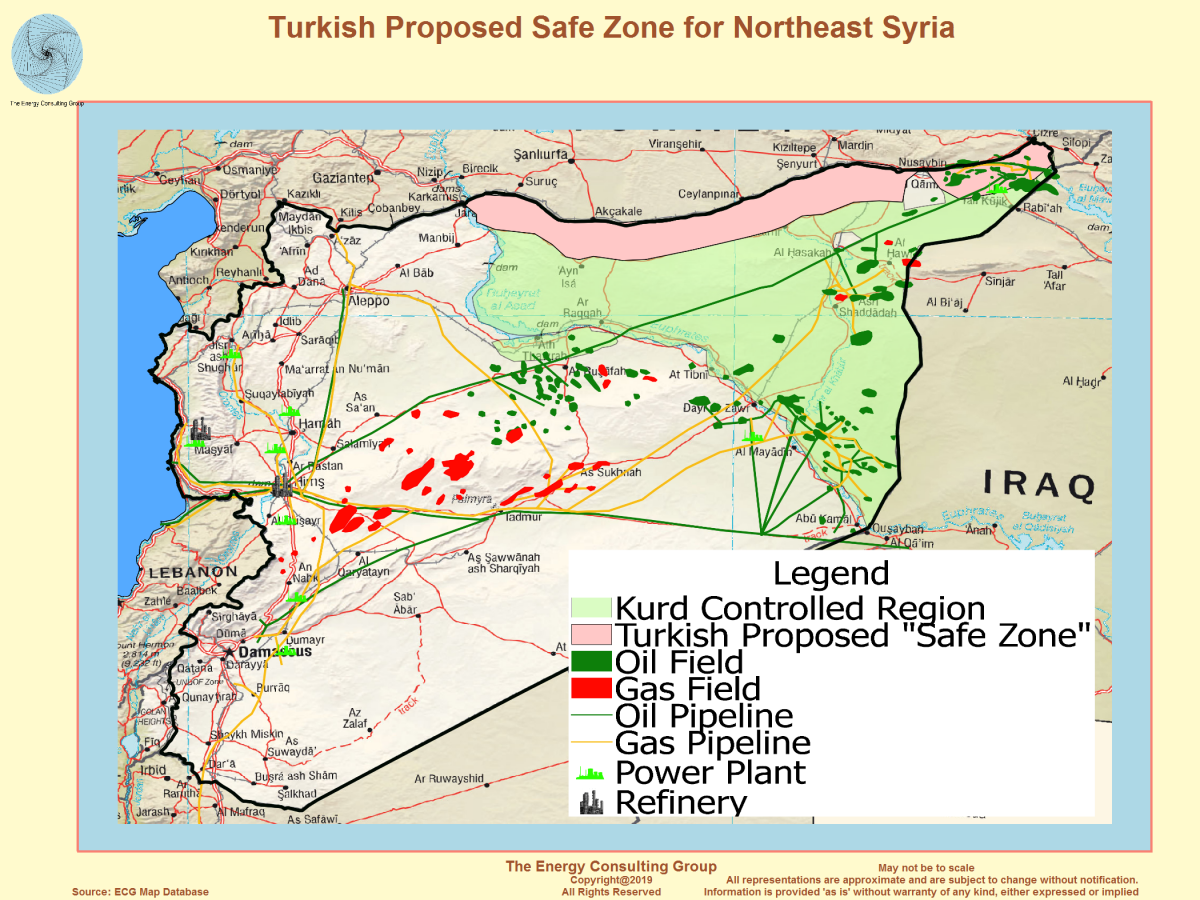
In the imperial carve-up of northern Syria, US troops have since late last year been controlling the oil-fields of Deir ez-Zor province, in collaboration with the Kurdish-led Syrian Democratic Forces (SDF). Now reports are emerging that the Kurdish autonomous administration in the region has signed a 25-year contract with a little-known US company for exploitation of oil in SDF-held territory. The company, Delta Crescent Energy, incorporated in Delaware in February 2019, still apparently lacks a website. But its partners are said to include former US ambassador to Denmark James Cain; James Reese, a former officer in the US Army’s elite Delta Force; and John P. Dorrier Jr., a former executive at UK-based GulfSands Petroleum. The GulfSands website indicates the British company has oil contracts in Syria that are “currently under Force Majeure as a result of EU sanctions.”
Delta Crescent is apparently taking over Kurdish-held oil-fields that had previously been under contract to GulfSands by the Assad regime. This is the Bloc 26 site, in Hasakah province, in the extreme northeast of Syria. Reports indicate the contract was arranged more than a year ago, but Delta Crescent only received a waiver from US sanctions on Syria from the Treasury Department’s Office of Foreign Assets Control (OFAC) in April. The Deir ez-Zor fields are said to have been excluded from the deal, in deference to local Arab tribes at odds with the SDF. The deal calls for some of the oil to be used locally but also for export to foreign markets through Turkey and northern Iraq.
The deal was confirmed by Secretary of State Mike Pompeo in July 30 testimony before the Senate Foreign Relations Committee on the State Department’s budget for the next fiscal year. The Assad regime’s Foreign Ministry called the deal illegal and accused the US of “stealing” Syria’s oil. (Al-Monitor, Kurdistan24, Politico, Reuters)
It is all too telling that Trump acquiesced in the Turkish invasion of the Kurdish autonomous region last year by withdrawing the US troops who were embedded there. After the Kurds had been usurped of their traditional heartland along the Turkish border, known as Rojava, Trump then ordered the troops back in—to “secure the oil,” as he put it.
The current deal concerns oil-fields that were already under production by the Kurdish autonomous administration before the Turkish aggression, and remain just outside Ankara’s occupation zone in the north. This leaves the fate of the Deir ez-Zor oil-fields an open question—and a politically trickier one. The Deir ez-Zor fields are not even in Rojava, but territory far to the south that the SDF had taken from ISIS, where they are increasingly viewed as an occupying force by the local Arab inhabitants. And the presence of US troops there doubtless deepens local suspicions.
Observing the perverse spectacle late last year of the White House green-lighting the Turkish usurpation of Rojava by withdrawing US troops only to send them back in to help an increasingly desperate SDF secure oil-fields in territory held outside Rojava, we recalled Trump’s 2016 campaign trail boast of his plans for Syria: “I’ll take the oil”—and turn the seized fields over to Exxon!
It turned out not to be Exxon, but a company seemingly created especially for this purpose. And the Rojava Kurds, hailed internationally as an inspiring anarchist-influenced model of direct democracy, are at risk of being reduced to collaborators in an imperialist resource grab.
It’s heart-breaking.




